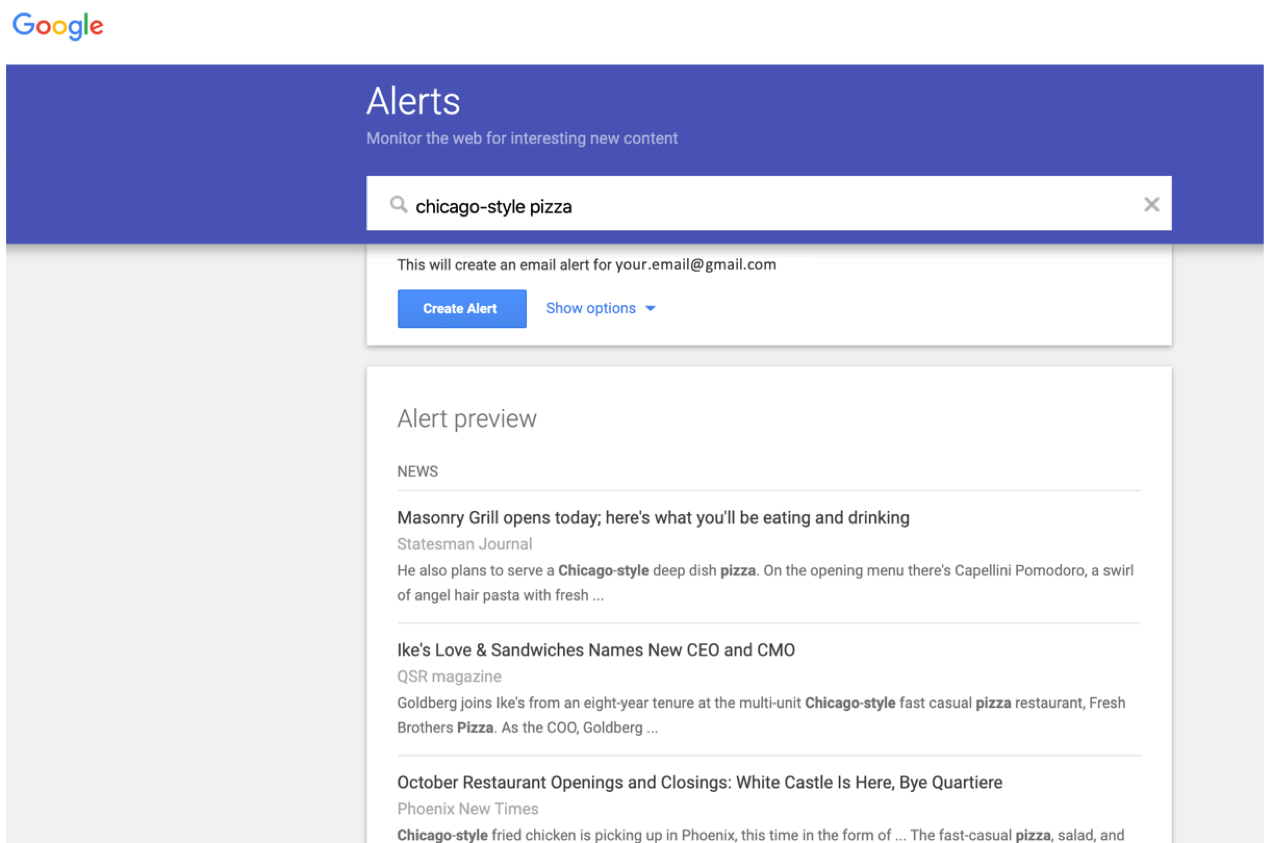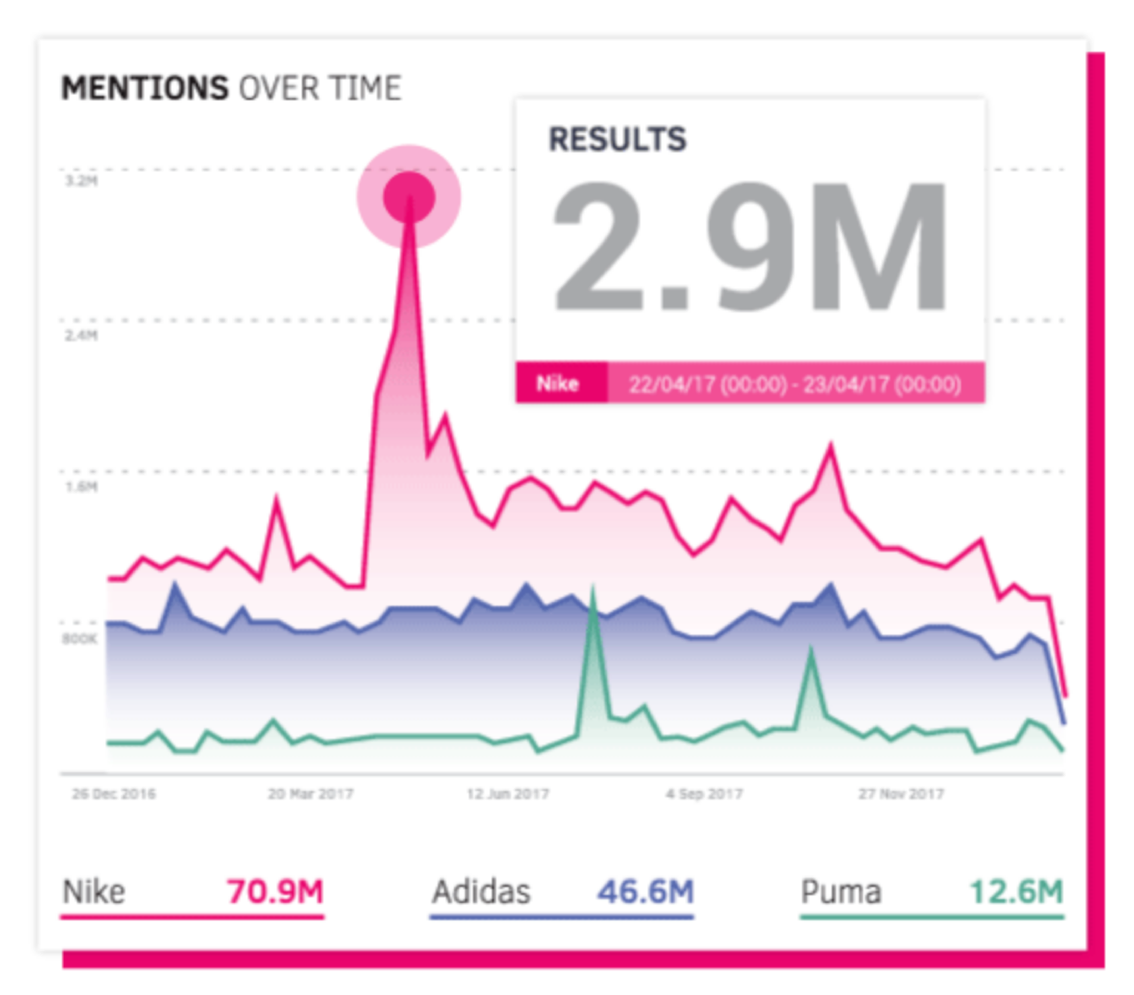Monitoring your reputation will give you key insights into what is being said about you online. You’ll gain a better understanding of your customers, which will also shed light on how well your products or services perform. Additionally, you can have a better chance to overcome a crisis or controversy by catching it in its early stages before it has a chance to snowball out of control.
Reputation management tools help to automate your efforts and can often uncover valuable insights that you may have otherwise missed. Here are a few tools we are asked about most often that are used to monitor your online reputation and often do many other things as well. At Reputation X we use two or three different tools at the same time to monitor our clients because no tool provides complete coverage or provides it as fast as another might.
SEMRush
SEMRush is a professional SEO tool that is used for general SEO tasks. One of its abilities is to track the position of search results. It also has a “brand monitoring” function. Used in combination you can get notifications about your brand (monitoring) and also setup the position of certain search results to track their visibility.
For example, let’s say your company has a Yelp problem. You can setup SEMRush to track the Google position of Yelp to get an idea over time as to how visible it is. If you have bad Yelp reviews you want Yelp to be on page 99 of search results (it’s usually on the first two pages though). By tracking both mentions and the position of negative search results you can get an idea as to whether you should be optimizing other review sites above any negative review issues you have. Of course, you should be working to improve those reviews too.
Google Alerts
Good old Google Alerts. We’ve found Google alerts to be best at being free, but there are better tools out there.
Google Alerts is a free web monitoring service offered by the search engine behemoth itself. You can set up alerts for your company name and industry keywords. This is a multi-purpose tool, since you can use it to monitor your brand mentions, which includes negative mentions, and you can also get content creation ideas from your industry keywords.
It’s super easy to set up Google Alerts. All you have to do is type in the keyword you’d like to receive notifications for and select a few options regarding frequency and region. Then you’ll receive emails that keep you up-to-date on the search results for your keyword or brand.
Mention
Mention works similarly to Google Alerts in the social media sphere, but is more robust. Mention will monitor social media to find any mentions of you or your brand in online conversations. You can listen to online conversations, publish relevant content, and interact with your audience directly. The platform allows you to monitor over 1 billion sources daily to catch any mentions of your name — both good and bad.
Mention performs both monitoring and listening as well as competitive analysis. Competitive analysis is when you monitor the conversation around your competition to understand industry trends as well as sentiment.
Review Push
Review Push is mainly about review monitoring. It simplifies review management by collecting all of your reviews in one place. This tool is particularly useful for business owners with multiple locations, as the software offers multi-site monitoring and unlimited locations. You can monitor reviews made on social media and top review sites.
Multi-level reporting allows you to drill down into reviews to see how different stores rank against each other. You can even find out which review sites that your brand doesn’t appear on, enabling you to target those platforms to improve your overall review strategy. Email alerts can also be set up to alert you of any new reviews, giving you the opportunity to quickly respond to both positive and negative reviews.
Talkwalker
Talkwalker is a free monitoring tool that enables you to track your campaigns and hashtags. There is no limit to the number of searches you can perform, and the service is available in 187 languages. You can search for your own campaigns and hashtags or those of your competitors to gain valuable intel that will place you ahead of your competition.
ReviewTrackers
ReviewTrackers is a great tool for business owners to monitor online reviews. You can set up email alerts for notifications that drill down into information on the overall sentiment of your reviews and the aspects of your business that get mentioned most often. There is also a mobile app that can be used to track and respond to reviews any time, even when you don’t have your laptop handy.
Birdeye
Birdeye is a good review monitoring and improvement tool for many companies. Its main reason to exist is to improve reviews and ratings but it does have a Birdeye Alerts function. Our main issue with Birdeye is that it doesn’t provide “gating”. Gating is when two-steps are used to get customers to write reviews:
- Step 1: Ask for a thumbs up or down from the customer.
- Step 2: If they gave it a thumbs up – send them to a review site. If a thumbs down – customer service steps in and no review is requested.
Birdeye doesn’t do gating, instead all customers are sent to a review site no matter their opinion. This may work for many companies (Birdeye says it does, our experience is a bit different), and is how Yelp and other review sites prefer things. But many industries (debt collectors, travel companies that rely on third-party service experiences, etc.) don’t respond as well to non-gated systems as they do gated ones.
Birdeye has a beautiful user interface (UI) though. Our favorite UI in fact. And its monitoring functionality is very good.
Maximize your ORM efforts
This is by no means a comprehensive list of all of the online reputation management monitoring tools out there. We’ve simply provided an overview of a few of the tools people ask us about most. Any one of these tools will help to automate your online reputation management, freeing up your time to work on improving or maintaining your reputation. We use many of them.
Once you start gathering the insights these tools make available, it’s important to create action. Knowing what is being said about you online will help to develop a personalized reputation management strategy. You’ll know which areas of your business are thriving, which ones need improvement, and you’ll be more connected to your audience or customers.

